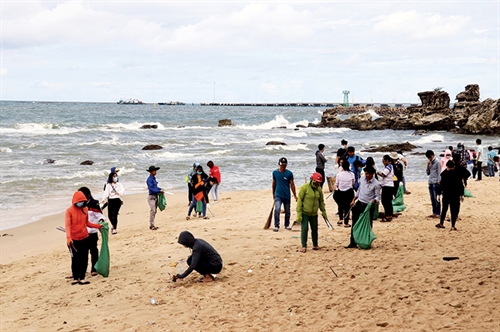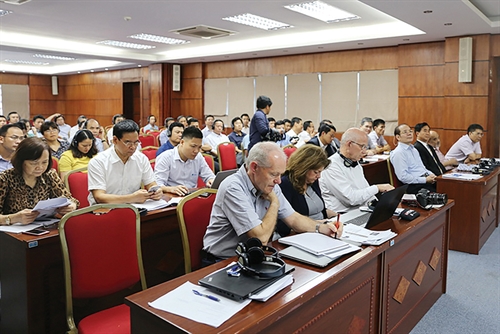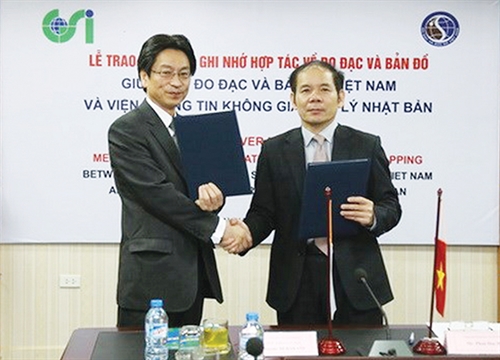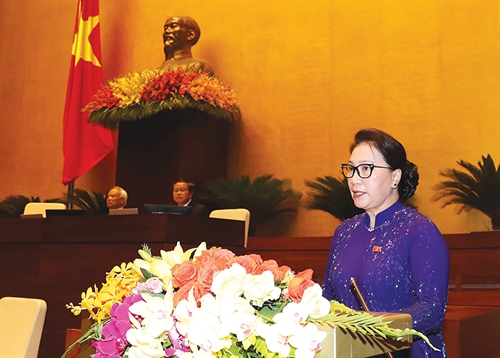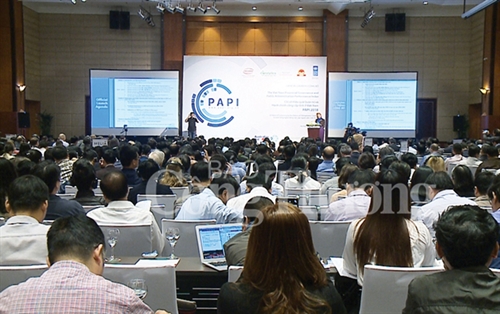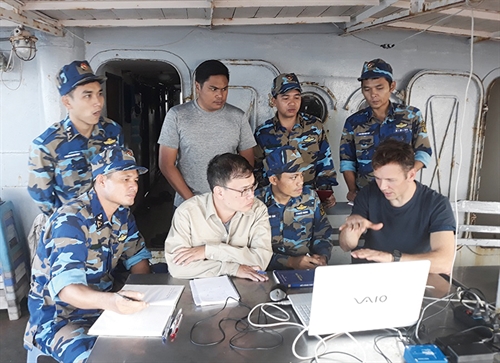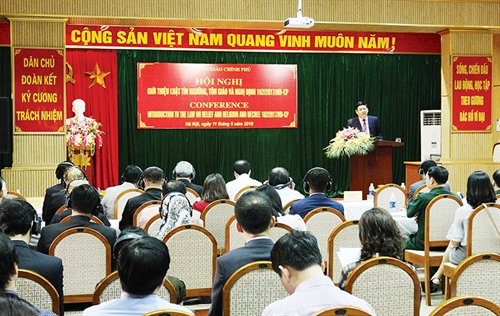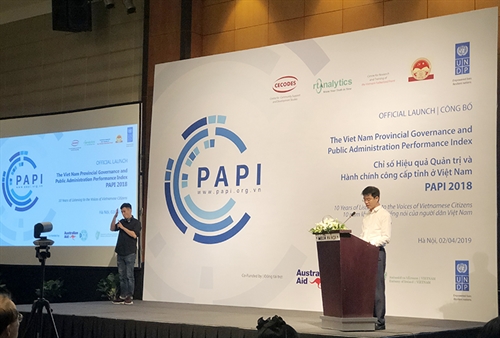Law on Competition
Composed of 121 articles arranged in 10 chapters, the Law provides new types of anti-competitive agreements, including (i) agreements on not trading with enterprises other than the parties to the agreements; (ii) agreements on restricting consumption market, sources of supply of goods and services from enterprises other than the parties to the agreements; and (iii) other agreements that cause or may cause anti-competitive effects.
It also prohibits cartels among enterprises that create or are likely to create significant competition restraining impacts in the market.
 |
| Safe farm produce put for sale at supermarkets in Hanoi Photo: Phuong Anh/VNA |
Law on Anti-Corruption
The 2018 on Law on Anti-Corruption, with 10 chapters and 96 articles, extends anti-corruption activities to non-state sectors.
Accordingly, persons holding positions and powers in enterprises or organizations in the non-state sectors are prohibited from embezzling assets; taking bribes; and giving bribes or brokering bribery for settlement of affairs of enterprises or organizations for self-seeking purpose.
The Law requires state cadres and civil servants to truthfully declare their property and incomes and changes in property and incomes of their own and their spouses and minor children.
At present, subject to property and income declaration are those holding the title of deputy heads of divisions of People’s Committees of rural districts, urban districts, provincial capitals or towns or higher and equivalent rank in agencies, organizations and units; persons managing the state budget and property or directly involved in the settlement of affairs of agencies, organizations, units and individuals, and candidates for National Assembly or People’s Council deputies.
 |
| Authorities of Tich Son ward, Vinh Yen city, Vinh Phuc province, disseminate regulations on asset and income transparency for officials and Party members __Photo: Internet |
Law on the People’s Public Security Forces
As per the Law, the period required for citizens in the enlistment age group to serve in the People’s Public Security Forces is reduced to 24 months from current 36 months.
However, the Minister of Public Security may decide to extend this period of active-duty service of non-commissioned officers and men for up to six months for ensuring the combat readiness or performing the tasks of natural disaster or epidemic prevention and control, search and rescue.
 |
| Public security soldiers at the fifth competition on regulation, shooting and martial arts of the People’s Public Security forces in Thua Thien-Hue province__Photo: Ho Cau/VNA |
Law on Special Amnesty
With 39 articles in six chapters, the Law prescribes the principles, time, order, procedures, competence and responsibilities for effecting special amnesty; conditions, rights and obligations of inmates eligible for special amnesty; and rights and obligations of persons granted with special amnesty.
Worthy of note, the Law adds some cases in which inmates may not be proposed for special amnesty.
They include those convicted of high treason; having carried out activities aimed at overthrowing the people’s administration; espionage; infringing upon territorial security; rebellion; terrorism aiming to oppose the people’s administration; sabotaging physical-technical foundations of the State of the Socialist Republic of Vietnam; producing, storing, spreading or disseminating information, documents or objects aiming to oppose the State of the Socialist Republic of Vietnam; disrupting security; destroying detention facilities; or terrorism; or one of the crimes prescribed in the Chapter on crimes against peace, crimes against humanity and war crimes in the Penal Code.
 |
| Handing over amnesty decisions to inmates __Photo: Internet |
Law on Vietnam Coast Guard
With 41 articles arranged in eight chapters, the Law prescribes the position, functions, tasks, powers, organizational structure and operation of the Vietnam Coast Guard; and regimes and policies applicable to this force.
Under the Law, the Vietnam Coast Guard performs the functions of (i) advising the Minister of National Defense on promulgating according to his/her competence, or proposing to the Party and the State policies and laws on protection of national security and order and safety on the sea; (ii) protecting the national sovereignty, sovereign rights and jurisdiction in the maritime zones of Vietnam; and (iii) managing security, order and safety and ensuring the observance of Vietnamese law, related treaties to which the Socialist Republic of Vietnam is a contracting party and international agreements.
It may pursue vessels on the sea if detecting that they infringe upon national sovereignty, sovereign rights and jurisdiction or fail to abide by signals and orders for stop given by the Vietnam Coast Guard in the cases specified in Article 13.2 of the Law.
 |
| Vietnam Coast Guard’s Ship 8004 on duty __Photo: Tran Tinh/VNA |
Law Amending and Supplementing a Number of Articles of the Law on Higher Education
The revised Law on Higher Education is expected to promote higher education and pave the way for giving greater autonomy to universities in the country.
As per the Law, universities have the right to determine their objectives and select methods of achieving these objectives; to decide on and take accountability for its professional and academic activities, organizational and personnel work, finance, property, and other activities in accordance with law and on the basis of its capabilities.
Specifically, they may decide on orientations for enrolment, discipline opening, training and joint training; recruit, employ and dismiss lecturers, civil servants and other employees; and decide policies on tuition fees and supports for learners.
 |
| Students of Hanoi Medical University in the laboratory __Photo: Internet |
However, the Law requires every university to have a university council, decentralize the autonomy and accountability to its attached units and staff; and make public the quality assurance conditions and post-graduation employment rate in accordance with law.- (VLLF)

